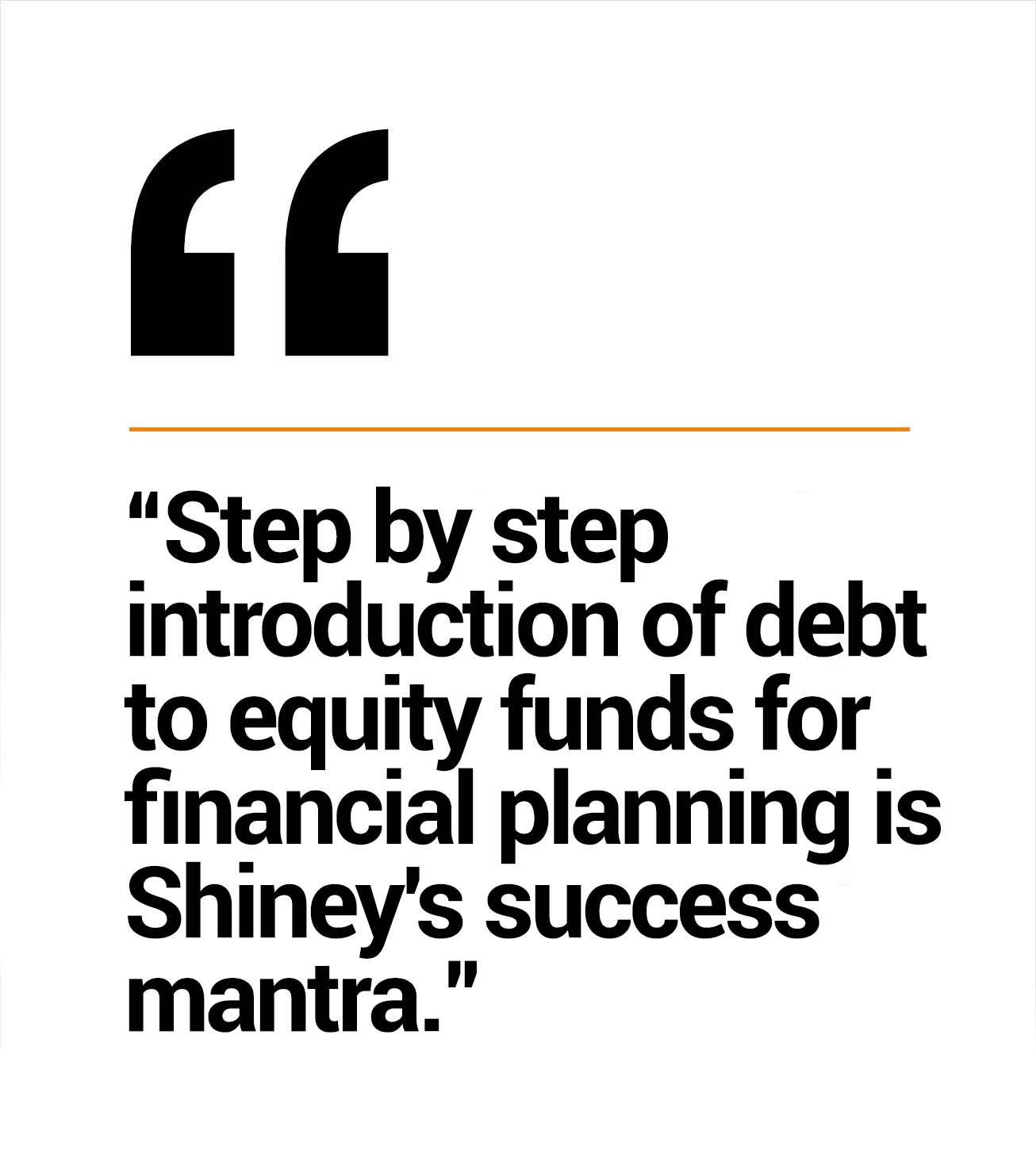Imagine that your client approaches you to help her accumulate a corpus for her child’s higher education and you recommend her to start an SIP in an equity scheme. She is investing in mutual funds for the first time. After a few months of SIP instalments, the market corrects and the client is perturbed.
While advisers have been educating investors to avoid looking at short term performance while investing for long term goals, chances are that they may be put off by seeing negative returns in their portfolio. Several of you may have faced this situation and may be wondering how to make investors stay invested in MFs and dissuade them from looking at short term returns.
Kerala-based adviser Shiney also faced a similar situation and she developed a novel way to make first time investors comfortable with mutual funds. Shiney on-boards all her prospects through debt funds. For risk averse investors who invest in bank fixed deposits and other ‘fixed return’ schemes, Shiney on-boards them through liquid or ultra-short term funds. Once they get comfortable with MFs and have a better understanding of the risk-reward trade off, she introduces them to hybrid and equity funds. “When we educate investors about the benefits of financial planning, they expect steady returns. The transition from fixed deposits to debt funds is easy compared to higher risk products,” says Shiney.
Shiney prefers to on-board even clients with a higher risk appetite through debt funds. “There are many clients who have higher risk appetite and understand markets well. But, I have still advise them to start with debt funds. Doing this helps me change the perception of clients and they do not expect unrealistic returns in the future,” explains Shiney.
Debt funds have been traditionally considered low risk. However, they have also invited a fair amount of scrutiny in the recent past due to a few instances of defaults. Also, the plunge in returns in debt funds after RBI tightened liquidity on July 16, 2013 came as a jolt for debt fund investors. However, Shiney was able to manage this crisis well. “During the 2013 debt market crisis, many of my clients suffered losses but none of them panicked since we were in touch with them during this crisis.” Shiney says that advisers should stay in touch with their clients, especially during tough times.
Client engagement and empowering women
Shiney is passionate about teaching women the importance of being independent.
Leading a seven-member women team, Shiney is helping women take financial decisions actively. In fact, she makes sure that her clients invite their spouse at every financial planning meet to make sure women have a say in planning finances and are privy to the investments made by the husband. Shiney says that women need to be aware of the bank accounts, passwords, ATM pins, insurance policies of the spouse which can help women tackle family emergencies well.
Shiney feels that women are better listeners and willing to invest for family’s long term goals which make them great clients. Also, she feels that women are better at giving referrals since they like to share with their friends if they have a good experience. “Women share with their friends and acquaintances if they feel insecure while men may not necessarily do so. Women talk about their life and family with their friends while men talk about politics and business,” says Shiney.
Journey
A post graduate in Marketing Management from Jamnalal Bajaj Institute of Management, Shiney worked as a wealth manager in Mumbai and found that there was an acute shortage of people who could guide investors to make the right investment decisions. That is when she decided to bridge this gap and floated her advisory firm - Affluenz Financial Services.
With 350 clients who are mostly HNIs and NRIs, Shiney manages AUA of Rs. 300 crore in MFs of which 70% is in debt. She deals with a number of products which include life insurance and Portfolio Management Services.
Shift in investor behaviour
Speaking about the shift in investor behaviour observed by her over the years, Shiney says that investors still prefer spending over investing and she feels it will require a lot of effort on the part of advisers to bring discipline among investors. “My client base largely includes HNIs and I feel they prefer giving to priority to spending over investing. There have been many instances where I had to intervene and force certain financial decisions on them,” says Shiney.
Another unhealthy trend which Shiney has observed is that savvy investors tend to check their portfolios very often. She believes in hands-off approach to investing and says that investors should not check their portfolios constantly as it only increases their anxiety. “Investors should stick to their asset allocation and invest according to their goals. Reacting to market noise and checking returns act as a hindrance to achieving goals.”
Key trends
Shiney feels that technology will play a vital role in her practice. From executing transactions to assessing risk profile, technology would make advisers life easier, she opines. In fact, she is planning to upgrade her website which would serve as an online office for her clients.
profile, technology would make advisers life easier, she opines. In fact, she is planning to upgrade her website which would serve as an online office for her clients.
Also, she says that every adviser has to upgrade her skills in order to gain an edge. These skills can be operational, technical and soft skills. “If you want to add value to your clients, upgrade your knowledge and skills regularly. To cater to the next generation, you will have to adapt latest digital trends in order to be relevant for them,” believes Shiney.
Going ahead, Shiney wants to continue to what she has been doing - empower women in India to be financially secure. Shiney’s success is an inspiring case study for women who wish to make it big in advisory profession.





